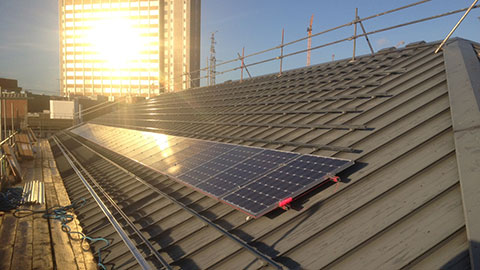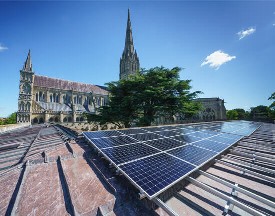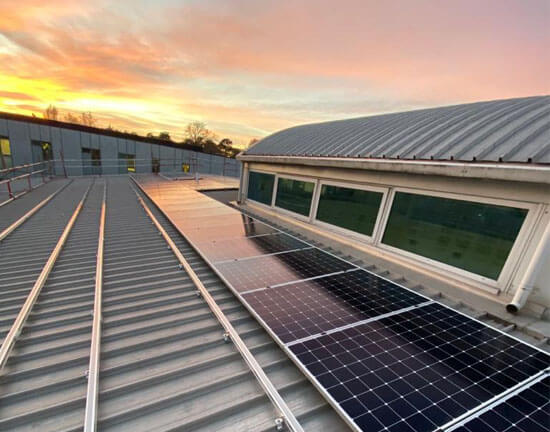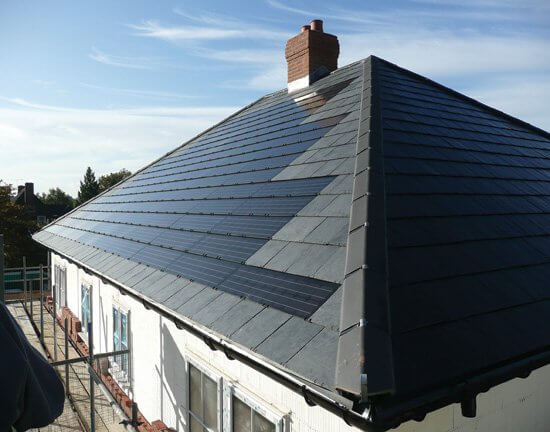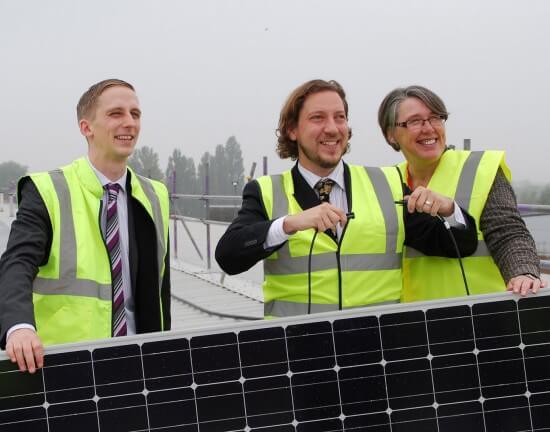Barn roofs
Solar panels can be installed on barn roofs, and this can be a great way for farms and agricultural businesses to generate their own electricity and reduce their energy costs while also promoting sustainability and reducing their carbon footprint.
Barn roofs are often flat or sloping, which can be ideal for solar panel installations.
Before installing solar panels on a barn roof, it’s important to assess the roof’s structural integrity and suitability for supporting the weight of the solar panels. The roof should be in good condition and be able to support the weight of the solar panels and the mounting system. It’s also important to ensure that the solar panels are installed at the optimal angle and orientation to maximize their exposure to sunlight. We will survey your building to ensure its suitability.
Once the roof has been assessed and prepared for installation, solar panels can be mounted using a variety of methods, including ballasted or anchored mounting systems. The solar panels will be connected to an inverter, which converts the direct current (DC) electricity generated by the solar panels into alternating current (AC) electricity, which can be used to power farm buildings, irrigation systems, and other equipment.
Farm fields
Farm fields can also be good locations for solar panels, and there are a few different ways they can be installed in fields. Here are some options:
Ground-mounted solar panels:
Solar panels can be mounted on the ground in farm fields using a ballasted or anchored mounting system. This can be a good option for fields that are not being used for crops or grazing.
Solar canopies:
Solar panels can be installed on a structure, such as a canopy, that is mounted above crops or grazing animals. This can provide shade and shelter for crops and animals while also generating electricity.
Floating solar panels:
Solar panels can even be installed on floating structures in bodies of water, such as irrigation ponds or reservoirs. This can be a good option for farms that have large bodies of water on their property. This can have the added benefit of preventing evaporation during the hot summer days.
Installing solar panels in farm fields can provide a number of benefits, including reducing energy costs, promoting sustainability, and reducing the carbon footprint of the farm. However, we always consider the impact on the land and any potential conflicts with farming activities. We assess things like how ground-mounted solar panels may affect crop rotation or grazing, and carefully consider the installation location and method when drawing up any potential proposal.




